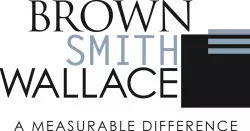For companies in many industries, implementing the new FASB's landmark revenue recognition standard is likely to be more time-consuming, complex and costly than management expected. Below is an overview of the changes that are coming soon to income statements and an IRS notice requesting comments about how the standard will affect income tax reporting.
A major shift
In May 2014, the Financial Accounting Standards Board (FASB) published Accounting Standards Update (ASU) No. 2014-09, Revenue From Contracts With Customers. The standard converged the rules for recognizing revenue under U.S. Generally Accepted Accounting Principles (GAAP) with new accounting rules published by the International Accounting Standards Board (IASB).
The FASB's revenue standard is the result of more than a decade of work with the IASB to produce a single method for companies worldwide to calculate their revenue. It scraps about 180 pieces of business- and transaction-specific guidelines in U.S. GAAP and calls for a principles-based approach to recognizing revenue.
Under the converged standard, companies must follow a five-step procedure for recognizing revenue:
- Identify a contract with a customer.
- Separate the contract's commitments.
- Determine the transaction price.
- Allocate a price to each promise.
- Recognize revenue when or as the company transfers the promised good or service to the customer, depending on the type of contract.
In some cases, the updated guidance will result in earlier revenue recognition than in current practice. This is because the new standard will require companies to estimate the effects of sales incentives, discounts and warranties.
Public companies must comply with the new revenue guidance in 2018. Private companies have an extra year to implement the changes.
The landmark standard is expected to create major accounting changes in certain industries, including software and telecommunications. But in some other sectors, such as retail, the change isn't expected to be as dramatic. The shift from rules-based accounting to more principles-based guidance also is expected to be a significant cultural shift for U.S. companies and their accountants.
FASB concerns
Recently, some FASB members have expressed concerns that the implementation process will require "tremendous" costs, even for the industries for which the accounting change will be relatively modest. During a recent interview, FASB member Lawrence Smith even admitted regrets about approving the changes to the revenue recognition guidance.
Specifically, Smith reflected, "I wish we could have done things differently for revenue recognition.... Had we known what we do today in terms of the overall cost of implementing [the new revenue recognition standard] when we added it to our agenda, we might have taken more of a targeted approach." As he now sees it, the FASB might have better served investors and other constituents if it had explored targeted improvements to its existing revenue guidance and not completely rewritten the standards.
IRS issues
Implementation issues on revenue recognition cross over into tax reporting. While the new revenue recognition standard is a significant change from current accounting standards, the income recognition rules for tax purposes currently remain unchanged.
Section 451 of the tax code requires a taxpayer to recognize income under the "all events" test when it: 1) has a fixed right to receive the income, and 2) can determine the amount with reasonable accuracy. Implementation of the new revenue recognition standard may create or increase differences between accounting and tax rules.
On March 28, the IRS issued Notice 2017-17 to request comments regarding the changes companies expect because of the new revenue standard. Comments are specifically requested on the following issues related to conformity between the new accounting standards and the tax rules:
- To what extent would using the new standards for federal income tax purposes result in acceleration or deferral of income under Sec. 451 or other tax code provisions?
- To what extent do the new standards deviate from the requirements of Sec. 451? In what situations should the IRS allow taxpayers who adopt the new standards to follow their book method of accounting for tax purposes?
- To what extent do the rules regarding allocation of standalone sales price and transaction price in the new standards affect taxpayers' ability to satisfy their tax obligations?
The IRS also wants to know if there are any industry- or transaction-specific issues that should be addressed in future IRS guidance.
Change in reporting method
The IRS notice also seeks comments on a proposed revenue procedure for getting automatic consent to a change of accounting method. It's intended to address situations where a change in accounting method is sought in the same year of adoption of the FASB's revenue recognition standard.
Under the current tax rules, a taxpayer generally must obtain consent from the IRS to change a tax accounting method by filing IRS Form 3115, "Application for Change in Accounting Method," and submitting detailed information about the change. To alleviate the administrative burden, the IRS created a list of "automatic" method changes whereby the taxpayer is deemed to have the consent of the IRS to change its accounting method if the taxpayer is within the scope of a revenue procedure and any related guidance for the specific method change.
Specifically, the recently published IRS notice asks:
- Is the proposed revenue procedure's exception for small businesses appropriate?
- What types of changes in methods of accounting do taxpayers anticipate requesting?
- Do taxpayers anticipate requesting changes in methods of accounting prior to the effective dates of the new standards?
- Which procedures should the IRS require taxpayers to use to request permission for a qualifying same-year method change — the automatic accounting method change procedures or the advance consent procedures?
- What changes, other than those described in the proposed revenue procedure, do taxpayers expect to request in the year they adopt the new financial standards, and should they be allowed as automatic changes?
- What related accounting method changes do taxpayers anticipate requesting that may appropriately be made on a single Form 3115?
- If multiple changes are requested on a single Form 3115, should the taxpayer report a separate adjustment for each change? Should those adjustments be netted and a single spread period applied?
- What alternatives to filing a Form 3115 would reduce the burden of compliance?
- What transition procedures may be helpful?
- What additional procedural changes would be appropriate and helpful?
Comments to IRS Notice 2017-17 are due by July 24. The IRS previously issued a notice with similar questions in 2015, but very few comment letters were received. With the implementation date just months away for many businesses, the IRS is hoping for a better response rate the second time around.
Need help?
Many companies are struggling with nitty-gritty details of adopting the landmark revenue recognition standard. The recent IRS notice demonstrates that the effects of this standard cross over into other business functions, including income tax reporting. Discuss your questions and concerns regarding the new guidance with your accountant or auditor — or submit comments to the IRS.
If you have questions regarding the new guidance, please contact Dan Ward, Principal, Audit Services, at 314.983.1237 or dward@bswllc.com.
The content of this article is intended to provide a general guide to the subject matter. Specialist advice should be sought about your specific circumstances.


